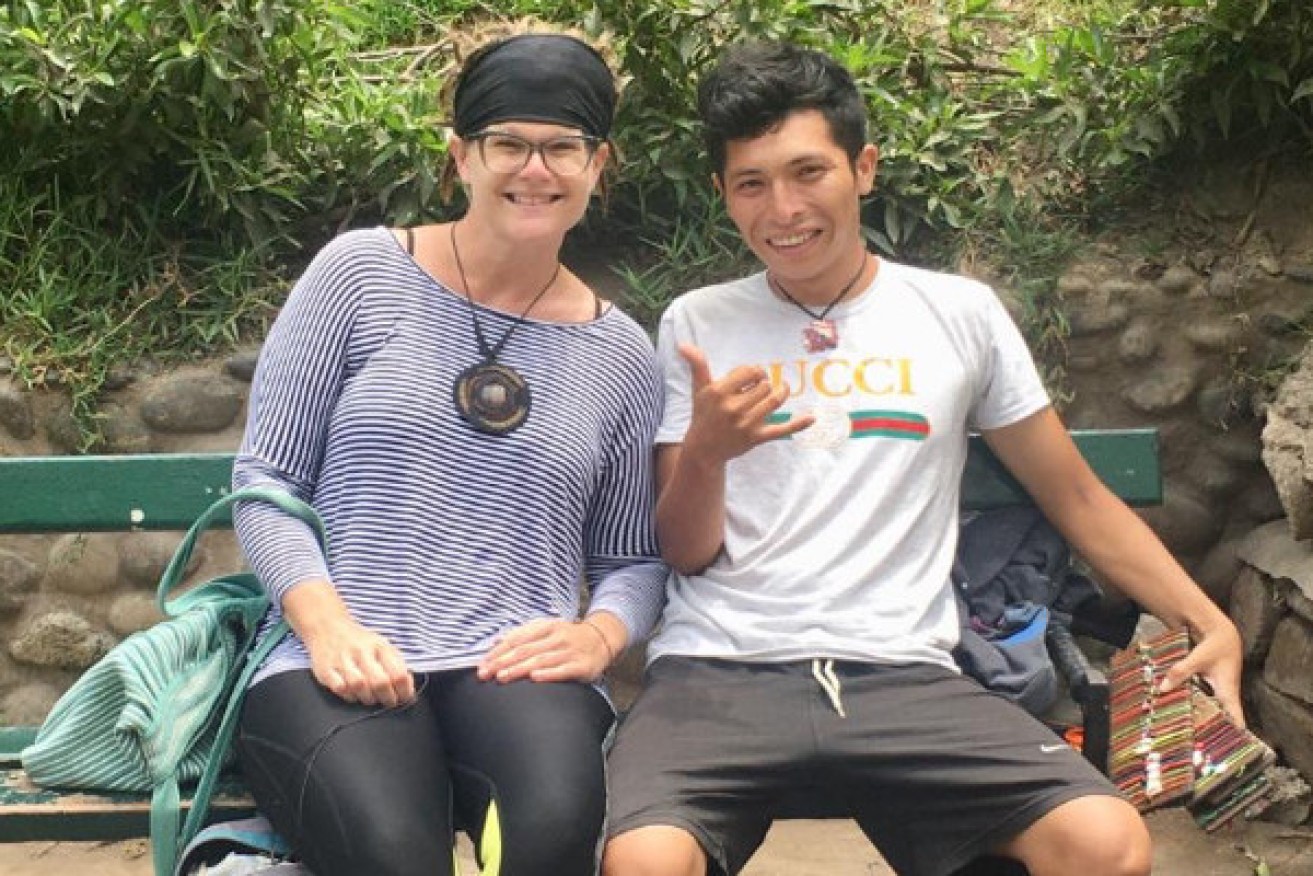Desperate Australians trapped in Sth America plead for emergency flight


Dr Amy Neilsen, left, says the only updates she has received are advising her to stay put.
Hundreds of Australians trapped overseas have pleaded with the Prime Minister to get Qantas to evacuate tourists stranded in countries – including Peru and Chile – where international flights have been cancelled and travellers are confined to hotel rooms.
A group of 100 Australians trapped in Peru and Chile have formed a WhatsApp group to share information as stories emerge of tourists being stopped from leaving some towns by military checkpoints and police.
One traveller, who asked to be called Tom, revealed he and a group of trapped Australians had been stopped from leaving the country by military and police, despite official government advice for tourists to leave.
“They wouldn’t let us get out. Every police checkpoint, it would take hours to get through,” he said.
“It was pretty devastating to get all the way there and still be denied clearance to leave.”
Tweet from @CarolPostlethw1
The Australian Embassy in Peru appeared to be struggling to deal with the demand for assistance.
“It’s a very small team in Peru and they lack the capacity to deal with the onslaught of inquiries,” Tom told The New Daily.

A plea from Australians in Peru and Chile, where international flights have been banned. Photo: Facebook
“A lot of the advice from DFAT officials is to stay put where you are. Now the reality is we are in a very isolated small town. But we have to think about where we are going to get extracted from – and that’s Lima. We have to find a strategy to get to Lima.
“The Peruvian government have moved as fast as they can to close the borders. It hasn’t allowed time for anyone who is a foreign traveller to get out.”
“We’re currently situated in Tacna, Peru, near the Chilean border.”
Travellers said the Australian ambassador to Chile, Todd Mercer, had personally intervened, pleading with authorities to let Australians at the border out of the country.
“I rang Todd probably with 10 minutes left before Chile closed borders. I said ‘I am calling the Australian ambassador’. I think they thought we were joking,” Tom said.
“He was on the phone for 30 minutes trying to get us out, negotiate some sort of amnesty.
“They wouldn’t let us leave the country. It’s just military officials following orders.”

Australia’s ambassador to Chile, Todd Mercer. Photo: DFAT
There are fears for tourists travelling by themselves and those in smaller groups.
“There have been people kicked out of hostels. In some cases in Peru, people have been scared of selling foreigners food,” Tom said.
“They are terrified of this virus … These are tiny towns, maybe 20,000 people, and there are police details stopping people travelling anywhere.”
The stranded tourists want Prime Minister Scott Morrison to organise rescue flights out after Qantas moved on Thursday to ground international flights in the midst of a $700 million taxpayer-funded bailout.
“If there’s going to be a bailout … we need a worldwide effort to bring Australians home,” Tom said.
Another traveller, Dr Amy Neilsen, said Australians who wanted to go home could not get out.
“The only updates I have at the moment are to stay. In Peru the president today (Wednesday) – as best I understand – expressed concern that too many people were on the streets yesterday and so today more people stopped by police to check they need to move about,” she said.
Tweet from @curtomm
Earlier this week, Mr Morrison urged all Australians overseas to return home as quickly as possible.
He has also urged Australians not to travel overseas, announcing unprecedented restrictions on international flights to try to slow the spread of the coronavirus.
“The travel advice to every Australian is ‘do not travel abroad’,” he said on Wednesday.
“Do not go overseas – that is very clear, that instruction. For those who are thinking of going overseas in the school holidays: Don’t. Don’t go overseas.”
Mr Morrison said Australia’s biggest risk from COVID-19, and the biggest incidences of cases, was from citizens and residents returning from overseas.
“From many countries that you wouldn’t have expected to be a source – and so it is very important that Australians do not travel abroad at this time,” he said.
“That is an indefinite ban but, as you are seeing from other countries around the world, they are putting similar restrictions on entry, just as Australia has on others coming into Australia.
“You would expect that to be in place now and that is the stage we have reached. “








